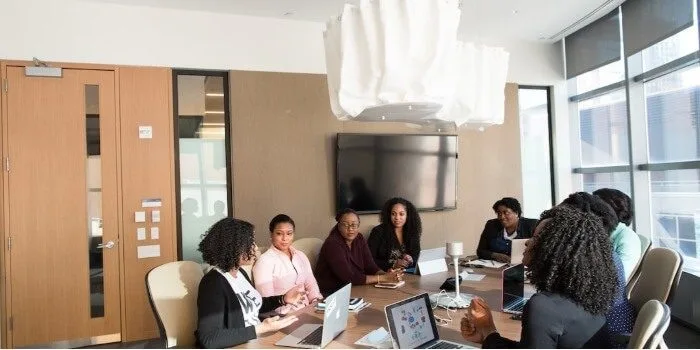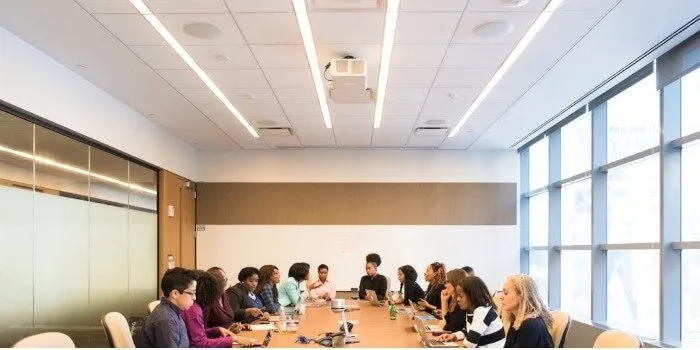Conferences are sources of knowledge, ideas, and networking, but their success often hinges on one key role: the session chair. But what is the role of the session chair in a conference?
The chair is responsible for moderating discussions, keeping presentations on schedule, and addressing technical problems as they arise. They also play a crucial role in summarizing key points and maintaining the session’s flow, all while keeping the audience engaged and interested.
To learn more about the full spectrum of responsibilities and the impact a session chair has on the conference experience, be sure to read our latest blog post.
What Does a Session Chair Mean in a Conference?
A session chair is the person responsible for managing a specific session at a conference. They introduce speakers, ensuring the session runs smoothly and on time. Their role also involves moderating discussions, keeping the conversation focused on the topic.

During the session, the chair helps maintain the flow of presentations. In addition, they organize the question-and-answer segment and make sure each speaker follows the allotted time. Their presence is vital in maintaining the schedule and addressing any issues that arise.
After the presentations, the session chair summarizes the key points discussed. They may also assist networking by connecting participants. Overall, the session chair plays a crucial role in the success of each conference session.
What is the Role of the Session Chair in a Conference?
The role of a session chair at a conference is multifaceted and essential for the event’s success. These individuals are tasked with guiding discussions and maintaining the session’s flow. Their expertise in the subject matter enriches the overall experience for both speakers and attendees. Here is the exploration of what is the role of the session chair in a conference.
Introduction and Time Management
The session chair begins by introducing each speaker and their topic to the audience. This sets the stage for what attendees can expect from the session. They also keep track of time, ensuring each presentation starts and ends as scheduled. This time management is essential to maintain the flow and respect the schedule of the conference.
Facilitating Discussions
After each presentation, the session chair opens the floor for questions. They encourage participation from the audience, fostering a dynamic and interactive environment. The chair moderates these discussions, ensuring they remain relevant and respectful. This role is vital for enriching the learning experience for everyone involved.
Ensuring Adherence to Guidelines
The chair ensures that each speaker adheres to the conference’s guidelines. This includes monitoring the content of presentations for appropriateness and relevance. They also make sure that technical requirements and presentation formats are followed. This adherence maintains the session’s professional standards and quality.
Closing and Feedback
At the session’s conclusion, the chair provides a brief summary and thanks the speakers and audience. They may also offer constructive feedback or key takeaways from the session. This closure helps in wrapping up the session coherently and provides closure. The chair’s closing remarks often set the tone for further discussions and networking.
The role of a session chair is multifaceted and essential for the successful execution of a conference. They not only manage the practical aspects of the session but also enhance the intellectual and interactive quality of the event. Their contributions are vital in creating a productive and engaging atmosphere for all participants.
Qualities You’ll Need to Be a Session Chair in a Conference
Serving as a session chair at a conference is both an honor and a responsibility. It requires a unique set of qualities to ensure the session is informative, engaging, and runs smoothly. The effectiveness of a session often reflects the chair’s capabilities and approach.
- Strong Communication Skills: A session chair must articulate ideas clearly and concisely. They facilitate discussions and engage speakers and the audience effectively.
- Time Management: Managing time efficiently is crucial for a session chair. They ensure that each presentation adheres to its allotted time frame.
- Leadership Abilities: Effective leadership skills are essential. A session chair guides the session’s flow and maintains a focused and respectful environment.
- Subject Matter Expertise: Knowledge of the session’s topic area is important. This expertise helps in understanding presentations and facilitating meaningful discussions.
- Problem-Solving Skills: The ability to swiftly address and resolve unexpected issues is vital. A session chair navigates technical difficulties or scheduling conflicts smoothly.
- Diplomacy and Tact: Handling discussions and interactions with diplomacy is key. The chair ensures a respectful and inclusive atmosphere for all participants.
- Attention to Detail: Paying attention to details ensures a high-quality session. This includes monitoring adherence to guidelines and the overall flow of the session.
The role of a session chair is multifaceted and demands a blend of interpersonal, organizational, and intellectual skills. The right combination of these qualities can greatly enhance the experience of conference participants and contribute to the success of the session.
Essential Steps to Become a Session Chair in a Conference
Becoming a session chair at a conference is a prestigious role that requires dedication and expertise. It involves a series of steps that one must undertake to prepare for this important position. Here are the essential steps to becoming a session chair in a conference
Step 1: Acquire Expertise in Your Field
Start by deepening your knowledge in your specific area of interest. Attend conferences, read relevant literature, and engage in ongoing research or professional development. This expertise not only builds your credibility but also makes you a desirable candidate for a session chair. Being well-versed in your field is essential to effectively manage and contribute to the session.
Step 2: Network and Build Connections
Networking at a conference is key in the academic and professional world. You can attend conferences to actively engage with peers, speakers, and organizers. Building these relationships can lead to opportunities, as session chairs are often selected based on recommendations or known expertise. Establishing a good reputation within your community is crucial.
Step 3: Volunteer in Conference Roles
Gain experience by volunteering in various roles at conferences. This could include assisting in organizing sessions, moderating panels, or helping with logistics. Such experiences provide insight into the workings of a conference and demonstrate your commitment and capability to take on more significant roles in the future.
Step 4: Express Interest and Availability
Proactively express your interest in being a session chair to conference organizers. Highlight your expertise, experience, and how you can contribute to the success of the conference. Availability is key, so ensure you can commit the necessary time and resources to the role.
Step 5: Prepare and Train
Once selected, prepare thoroughly for your role. Familiarize yourself with the session topics, speakers, and conference guidelines. Some conferences may offer training for session chairs; take advantage of these resources to hone your skills and understand your responsibilities.
Becoming a session chair involves a combination of expertise, networking, volunteering, expressing interest, and preparation. This role is not just an honor, but also a commitment to contributing meaningfully to the knowledge-sharing community. By following these steps, you can effectively prepare for and excel in the role of a session chair.
Benefits of Being a Session Chair in a Conference
Taking on the role of a session chair at a conference offers a variety of benefits that extend beyond the conference itself. This position not only enhances your professional profile but also provides unique opportunities for personal growth and networking. Let’s explore the benefits of being a session chair in a conference:
Professional Recognition
Being a session chair boosts your professional recognition significantly. It showcases your expertise and leadership skills to peers and leaders in your field. This role often leads to increased visibility within the academic or professional community. It also enhances your resume, reflecting your active participation and contribution to your field.
Networking Opportunities
As a session chair, you interact closely with speakers, attendees, and organizers. These interactions provide opportunities to build valuable connections and collaborations. Networking in such a setting can lead to future research, career opportunities, or professional partnerships. It’s an ideal platform to expand your professional circle with like-minded individuals.
Knowledge Enhancement
The position exposes you to the latest research and developments in your field. You gain insights from diverse presentations and discussions, broadening your perspective. This continuous learning experience is invaluable for personal and professional growth. It keeps you updated and deepens your understanding of your area of expertise.
Leadership and Skills Development
Serving as a session chair develops essential leadership and organizational skills. You learn to manage time, facilitate discussions, and handle unexpected challenges effectively. These skills are transferable and beneficial in various professional scenarios. They also contribute to your overall personal development and confidence.
Being a session chair is a rewarding experience that offers a unique blend of professional and personal benefits. It not only elevates your standing in your professional community but also enriches your knowledge and skills. The role is an excellent opportunity to engage deeply with your field and make meaningful contributions to it.
Conclusion
The role of a session chair in a conference is a multifaceted responsibility crucial for the event’s success. They ensure efficient management, engaging discussions, and a smooth flow of the session.
The significant effect that session chairs have on the proceedings of a conference becomes clear when one understands what is the role of the session chair in a conference. In addition to keeping time, they play a crucial role in raising the event’s intellectual caliber.
Session chairs significantly contribute to the productivity and engagement levels of a conference. Their leadership and expertise play a key role in shaping a successful and enriching conference experience.







